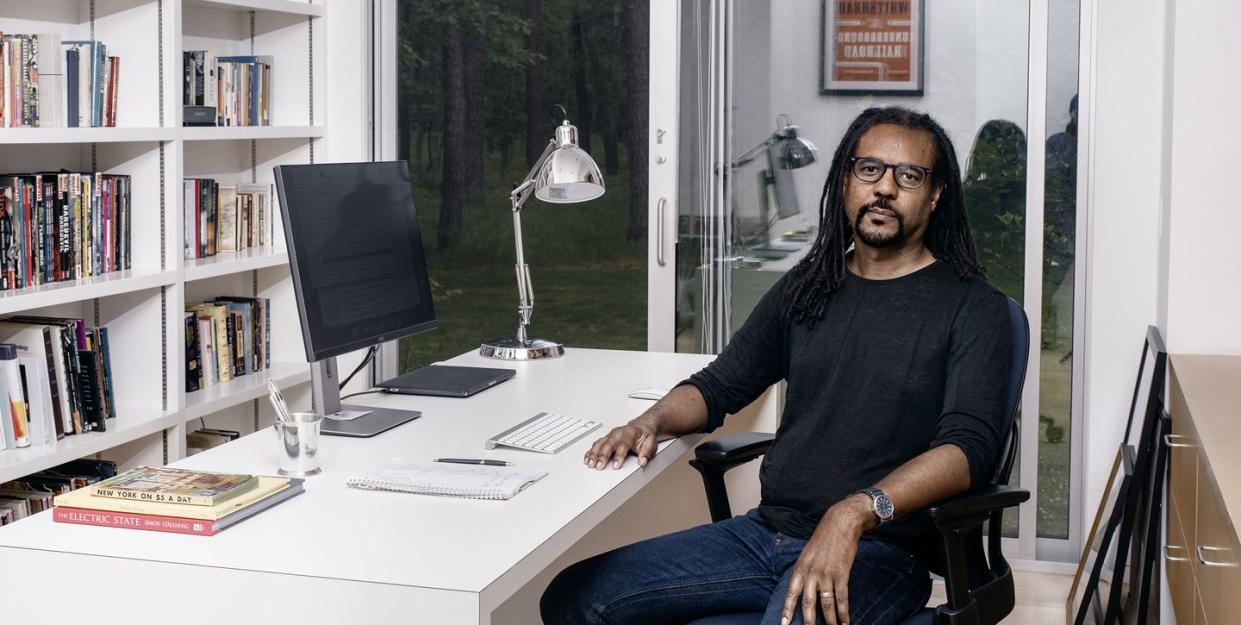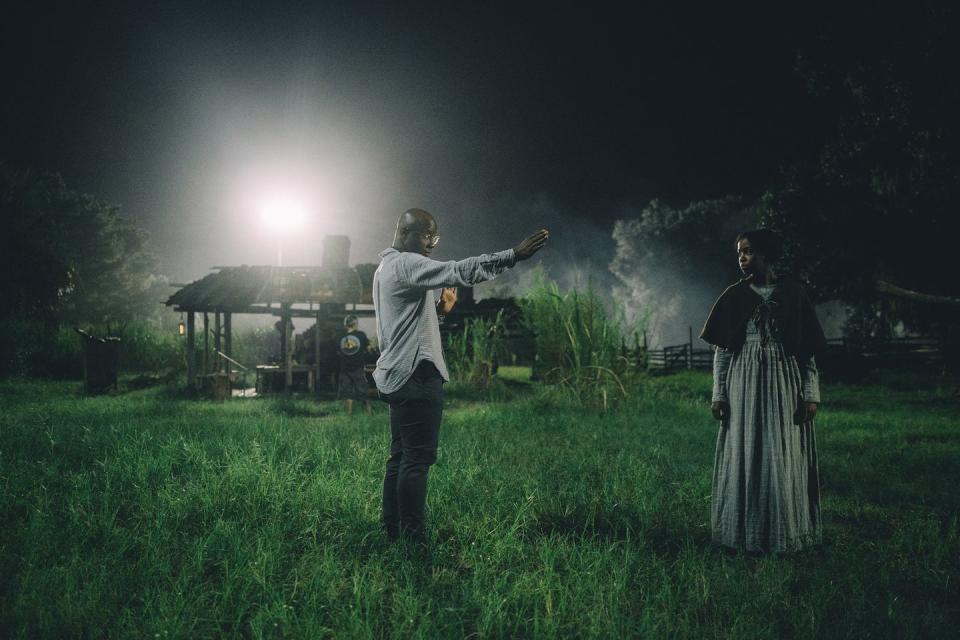Colson Whitehead on Race in America: "It’s Not Timely. It’s Timeless"

In 2019, Colson Whitehead, the author of The Underground Railroad and The Nickel Boys, decided to realise a long-held ambition and write a crime caper. Harlem Shuffle, which comes out this autumn, follows furniture salesman Ray Carney through three decades and three crimes, as his crooked side-hustle as a fence for stolen goods takes over his life.
In order to flesh out his protagonist, Whitehead, who appeared on the cover of Time magazine in2019, headline “America’s Storyteller”, walked the streets of Harlem. There, the 51-year-old discovered that even he, born and raised and still resident in Manhattan, could still be surprised by New York City. “I’d never been to Marcus Garvey Park but it was a big place for dumping bodies if you were a gangster,” he tells me on a Zoom call from his holiday home on Long Island, where he spends time with his wife, Julie Barer, a literary agent, and their two children. “You find out stuff like that and it becomes part of the lore of the characters’ lives.”
Whitehead — a formidable presence even virtually, delivering uncomfortable truths before chuckling at how bleak they sound when said aloud — had the idea for Harlem Shuffle in 2014. At the time he was working on his breakthrough novel, The Underground Railroad, a project which took him over a decade to complete, adding a line or two as they came to him. The book followed Cora, a slave who escapes from a plantation using the network of safe passages of the title, which Whitehead, in an inspired twist of magical realism, reimagined as a physical, subterranean train route running beneath America’s southern states.
Like much of his other work, The Underground Railroad mined America’s dark history to draw uncomfortable parallels to our current moment. The novel’s overwhelming success — it won the National Book Award and the Pulitzer Prize —brought the author, the third of four children born to parents who owned a successful recruiting business, a new level of attention. It was selected for Oprah Winfrey’s hugely influential book club and featured in Barack Obama’s 2016 summer reading list; the then-President said that the book was a“reminder of the ways in which the pain of slavery transmits itself across generations [and] how it changes minds and hearts”.

This spring, an epic TV adaptation of The Underground Railroad, made by Moonlight writer and director Barry Jenkins, was released on Amazon. When Whitehead visited the set, he marvelled at how the exact white horse cart he had invented in his writing was now a physical object he could touch. “I was very moved,” he says, of watching the show for the first time. “It’s hard to believe something [so] beautiful happened to me, frankly.”
By the time he sat down to write the follow-up, American history had taken another ugly turn.“Forty per cent of the country voted for Donald Trump, an incredible racist and corrupt individual,” says Whitehead. “Those racist people that he appealed to aren’t dying off, there’s millions and millions of them and they are going to be running the country and winning elections for all my lifetime and my kids’ lifetime. We get better by small degrees, and maybe that’s all we can really hope for.”
The Nickel Boys, published in 2019, moves between the present day and 1960s Florida, where its heroes, black teenagers at a segregated juvenile reform school, are brutalised by racist staff. It is based on the decades-long history of abuse, rape and murder at the Arthur G Dozier School for Boys in Florida, which was not exposed until 2010. The Nickel Boys earned Whitehead a second Pulitzer, a feat which only four fiction writers have achieved (the others: Faulkner, Mailer, Updike).“It’s the same shit, different day,” he says coolly of the pressure that these accolades bring.“[Writing] was difficult before, it’s difficult now.It doesn’t get harder or easier just because people liked the last book.”
Whitehead spent lockdown finishing the final chapters of Harlem Shuffle, glad to be able finally to have a bit more fun. He picked from the “big, beautiful buffet” of crime fiction, with inspirations as varied as the films of Tarantino, Patricia Highsmith’s Ripley novels, and the “psychotic landscape of Harlem” in Chester Himes’ writing. He had originally conceived Ray Carney as a sociopath, but ended up warming to him and letting him get away with being bad, a reversal of his other novels, in which white people are seldom, if ever, held to account.
The day after he finished writing Harlem Shuffle was the first day of protests following the murder of George Floyd. “It doesn’t go away, it doesn’t change,” he says of the line between America’s racist past and its racist present. In that sense, the novel is both a departure from and a return to Whitehead’s abiding concerns. He has the mixed blessing of being a writer whose work is called urgent and timely because only now are the realities of what has been happening for centuries being widely acknowledged. “If you talk about race in the past you end up talking about race now. It’s not timely,” he says. “It’s timeless.”
Harlem Shuffle is published on 14 September
You Might Also Like


